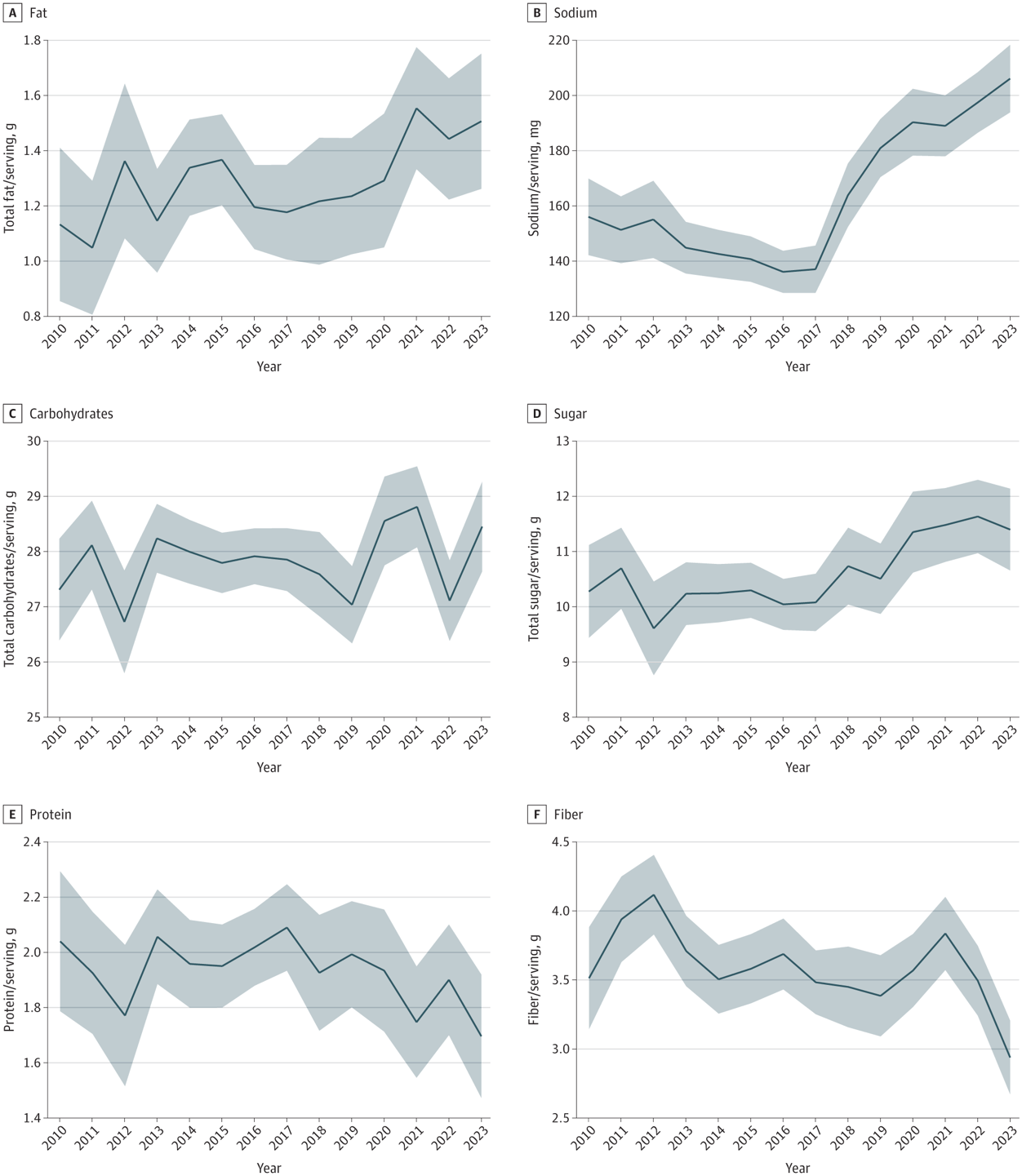trendcasting
How the nutritional value of kids’ cereal has changed

JAMA Network Open
Ready-to-eat cereal for kids has gotten less nutritious over time, according to a study published yesterday in JAMA Network Open. Researchers used data on new product launches (things like new packaging, new formulations, or a new variety) between 2010 and 2023 to analyze the trends.
Take a look at the graphs above to get an idea. Among cereals specifically marketed to kids, fat and sodium content showed the biggest increases over the time period, with jumps of 33% and 32% respectively. Meanwhile, protein and fiber ultimately decreased in cereals by 2023. The study authors call these trends “concerning,” and believe they suggest companies are prioritizing taste over nutritional quality.
The study reminded me of a 2023 story by former STAT reporter Nick Florko about how Kellogg’s went to war over new nutrition label rules in Mexico. Back then, the FDA announced it was studying similar updated labeling for the U.S., so it would be easier for consumers to know if the food they were buying is healthy or not. It’s unclear if the Trump administration will continue pursuing new rules. So far, the administration has bargained with food manufacturers to phase out synthetic dyes, but some experts say that sugar and refined carbohydrates are a much bigger problem.
global health
How do you spell WHO without U.S.?
At this week’s annual meeting of the World Health Organization’s members in Geneva, officials and delegates spoke repeatedly of the disruption and crisis in international funding the organization is facing. They were upfront about program cuts, job losses, and the resulting increase in illnesses and deaths that is all but guaranteed to come. But they largely skated past the major cause of those problems — the U.S. pulling its long-standing funding from the WHO and other global health initiatives.
“Let’s be clear: a reduced workforce means a reduced scope of work,” said Tedros Adhanom Ghebreyesus, the director-general of the WHO in his opening remarks. “The organization simply cannot do everything member states have asked it to do with the resources available.” But in the entire speech, Tedros didn’t explicitly mention the U.S. pullout once. Read more from STAT’s Andrew Joseph.
